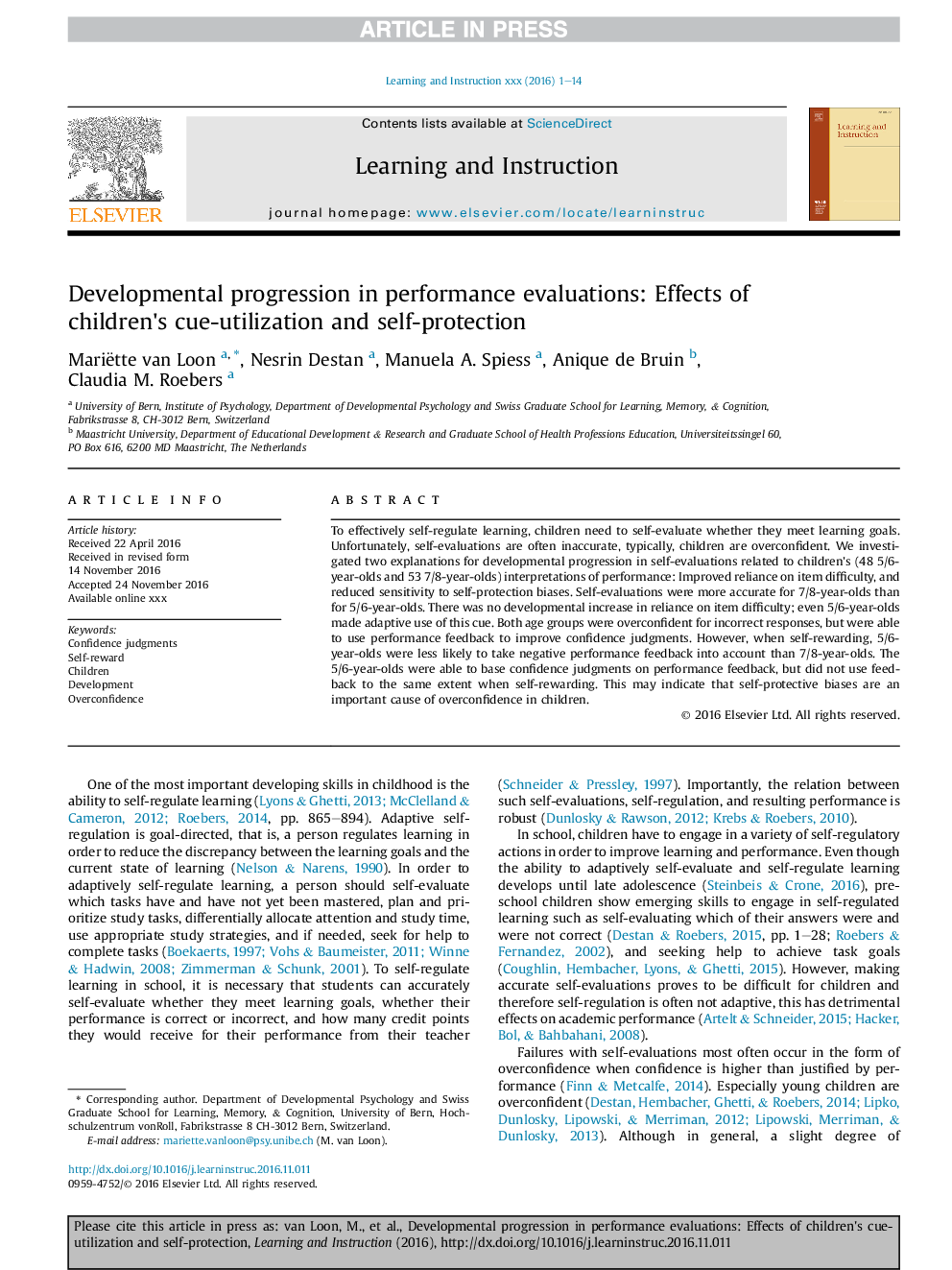| Article ID | Journal | Published Year | Pages | File Type |
|---|---|---|---|---|
| 4940222 | Learning and Instruction | 2017 | 14 Pages |
Abstract
To effectively self-regulate learning, children need to self-evaluate whether they meet learning goals. Unfortunately, self-evaluations are often inaccurate, typically, children are overconfident. We investigated two explanations for developmental progression in self-evaluations related to children's (48 5/6-year-olds and 53 7/8-year-olds) interpretations of performance: Improved reliance on item difficulty, and reduced sensitivity to self-protection biases. Self-evaluations were more accurate for 7/8-year-olds than for 5/6-year-olds. There was no developmental increase in reliance on item difficulty; even 5/6-year-olds made adaptive use of this cue. Both age groups were overconfident for incorrect responses, but were able to use performance feedback to improve confidence judgments. However, when self-rewarding, 5/6-year-olds were less likely to take negative performance feedback into account than 7/8-year-olds. The 5/6-year-olds were able to base confidence judgments on performance feedback, but did not use feedback to the same extent when self-rewarding. This may indicate that self-protective biases are an important cause of overconfidence in children.
Related Topics
Social Sciences and Humanities
Psychology
Developmental and Educational Psychology
Authors
Mariëtte van Loon, Nesrin Destan, Manuela A. Spiess, Anique de Bruin, Claudia M. Roebers,
